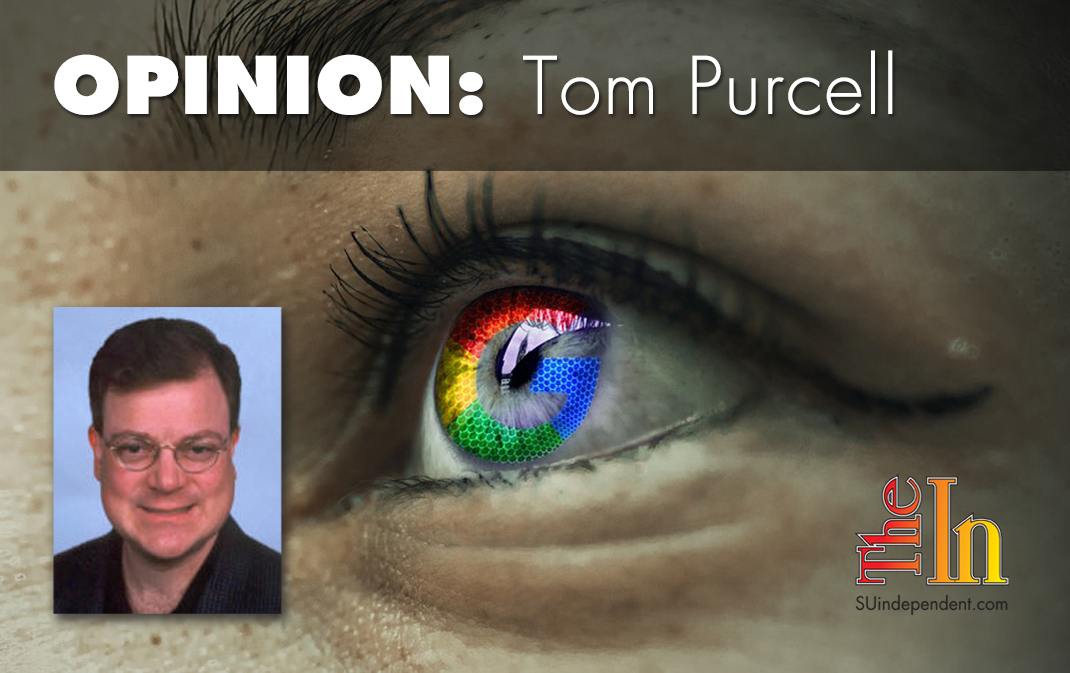
All along, Google has been Googling me
I thought Facebook knew too much about me, but it turns out Google is even worse.
Google, like Facebook, makes its money by targeting ads at us that reflect our interests and needs. The more both know about us, the better they’re able to target us with ads we’re likely to click.
But Google knows a lot more about me than I thought — plenty more than Facebook.
Since I created a Google account — I use Gmail and Google Docs for my rental-property business — I have freely provided Google with lots of personal information.
I’ve told Google my name, birthday, and gender. It knows my phone number and password. It tracks my email correspondence, photos or videos I’ve saved, documents I’ve created in Google Docs, any calendar events I’ve noted, any contacts I’ve added.
But Google also collects lots of data that I didn’t know I was providing.
“When you use our services – for example, do a search on Google, get directions on Maps, or watch a video on YouTube – we collect data to make these services work better for you,” reports Google on its “Data Transparency” page.
That’s where things get a little bit creepy.
Not only does Google keep extensive data on the searches you’ve conducted and the websites you’ve visited, it likely knows where you are at this moment — and everywhere you’ve been.
I discovered this when I reviewed some of the data Google has collected about me.
My Android smartphone, I now know, has been sending Google my location data — incredibly detailed location data — for a very long time. I found this information on my personal Google Location History page.
Curious, I clicked on “Saturday, December 15.” A map displayed the entire route I drove that day.
At 9 a.m., Google knew that I left my house and drove to a diner; it knew the name and address of the diner.
It knew that I spent 25 minutes in the diner — I had breakfast with two hired hands who would help me that day — then arrived at U-Haul at 9:38 a.m. I left U-Haul with a box truck at 9:51 a.m. and arrived at 10:33 a.m. at a private home to pick up some furniture I purchased from the owner. I left at 10:42 a.m. and drove to a consignment store to pick up more furniture.
Google knows everywhere I went that day. In fact, Google knows everywhere I’ve been and how much time I spent there every moment of every day since I began using my Android years ago.
“Google promises that it keeps all of this data safe during transit between your computer or smartphone and its servers,” reports CNBC. “It also says that its cloud infrastructure protects that data, and that it doesn’t give governments ‘direct access’ or ‘backdoor access’ to any information.”
Why am I not comforted by this promise?
It’s true that Google gives individuals the option of adjusting privacy settings. On Google’s Activity page, I can turn off location tracking and stop Google from tracking the devices I use, the YouTube videos I watch, my website activity and more.
Still, it’s unsettling that anyone, let alone one of the biggest companies on Earth, knows so much about me — and about so many of us.
Google it? With what I know now, it seems more like Google is Googling me.
The viewpoints expressed above are those of the author and do not necessarily reflect those of The Independent.
How to submit an article, guest opinion piece, or letter to the editor to The Independent
Do you have something to say? Want your voice to be heard by thousands of readers? Send The Independent your letter to the editor or guest opinion piece. All submissions will be considered for publication by our editorial staff. If your letter or editorial is accepted, it will run on suindependent.com, and we’ll promote it through all of our social media channels. We may even decide to include it in our monthly print edition. Just follow our simple submission guidelines and make your voice heard:
—Submissions should be between 300 and 1,500 words.
—Submissions must be sent to editor@infowest.com as a .doc, .docx, .txt, or .rtf file.
—The subject line of the email containing your submission should read “Letter to the editor.”
—Attach your name to both the email and the document file (we don’t run anonymous letters).
—If you have a photo or image you’d like us to use and it’s in .jpg format, at least 1200 X 754 pixels large, and your intellectual property (you own the copyright), feel free to attach it as well, though we reserve the right to choose a different image.
—If you are on Twitter and would like a shout-out when your piece or letter is published, include that in your correspondence and we’ll give you a mention at the time of publication.
Articles related to “All along, Google has been Googling me”
Five key elements for the next wave of improved social media networks



